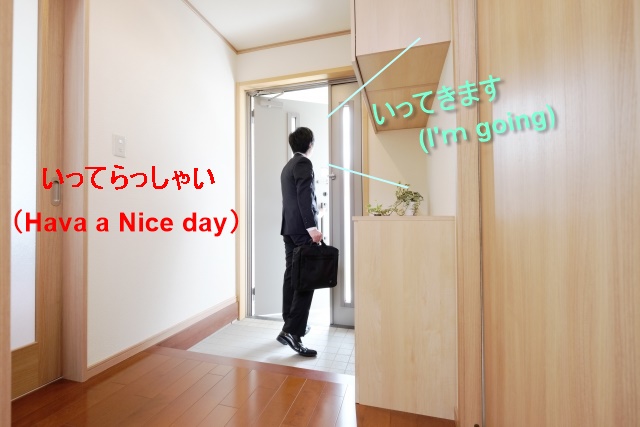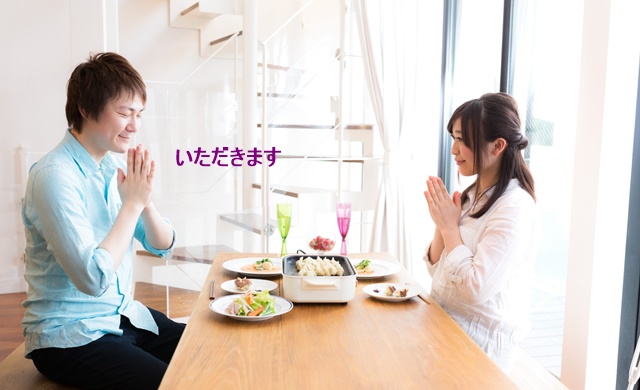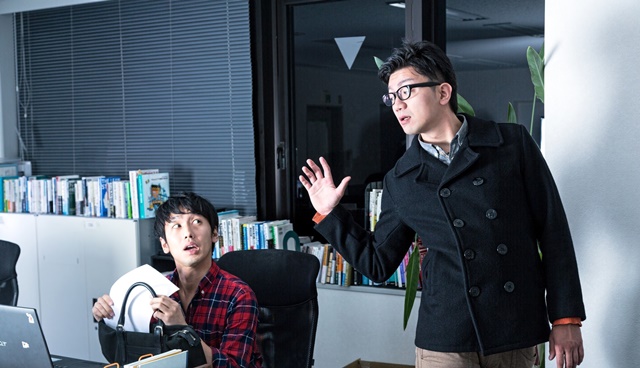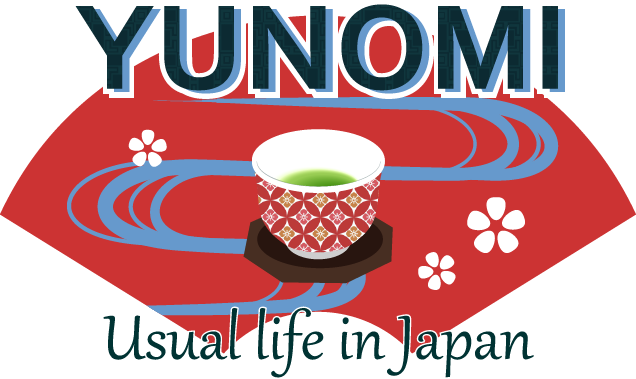Konnnichiwa (hello) must be the most well-known Japanese greeting.
‘Konnichiwa’ will be used any time after ‘good morning’ time but before ‘good evening’ time.
‘Ohayo’ is good morning.
Ohayo followed by ‘Gozaimasu’ (oayo gozaimasu) is the polite version.
‘Konbanwa’ (good evening) is the greeting used in the evening and afterwards.
Greeting at Departure

When you go out, anytime of a day, you will say to anyone you leave behind ‘Ittekimasu’ which literally means ‘I’m going’. You will be answered by ‘Itterasshai’, let’s say ‘Have a nice day’.
When you are back, you are supposed to say ‘Tadaima’ toward anyone at home, that means ‘I’m back’. You will be welcomed by being responded ‘Okaeri-nasai’ – welcome back.
Greeting at the time of meals

There are specific correspondences when you eat.
Before eating, you will say ‘Itadakimasu’. This is to express gratitude for the actual food just served and for the person who prepared it, and furthermore, for all the sacrifices made to feed you.
The host or the person who prepared would answer ‘Meshiagare’ -- ‘please eat’.
Greeting at night

When you are going to bed, you will exchange the bedtime greeting with anyone around you; ‘Oyasumi-nasai’. Literally, ‘sleep well’. This greeting can be exchanged with people you meet late at night even outside the house.
Greeting At work

If you work with Japanese people, you will hear them say ‘Otsukare-sama’ to each other at the end of the work. It could mean ‘Good job done’.’ The appreciation for each other’s work of the day.
Lastly, let’s mention ‘Sumimasen’

You will probably hear this so many times while you are in Japan. ‘Sorry’ or ‘Excuse me’ in Japanese. Some people tend to think it’s better to say ‘sumimasen’ casually and close the deal rather than allowing the issue a space to develop by suggesting it’s not really my fault!
An apology ‘Gomen-nasai’ works the same.

